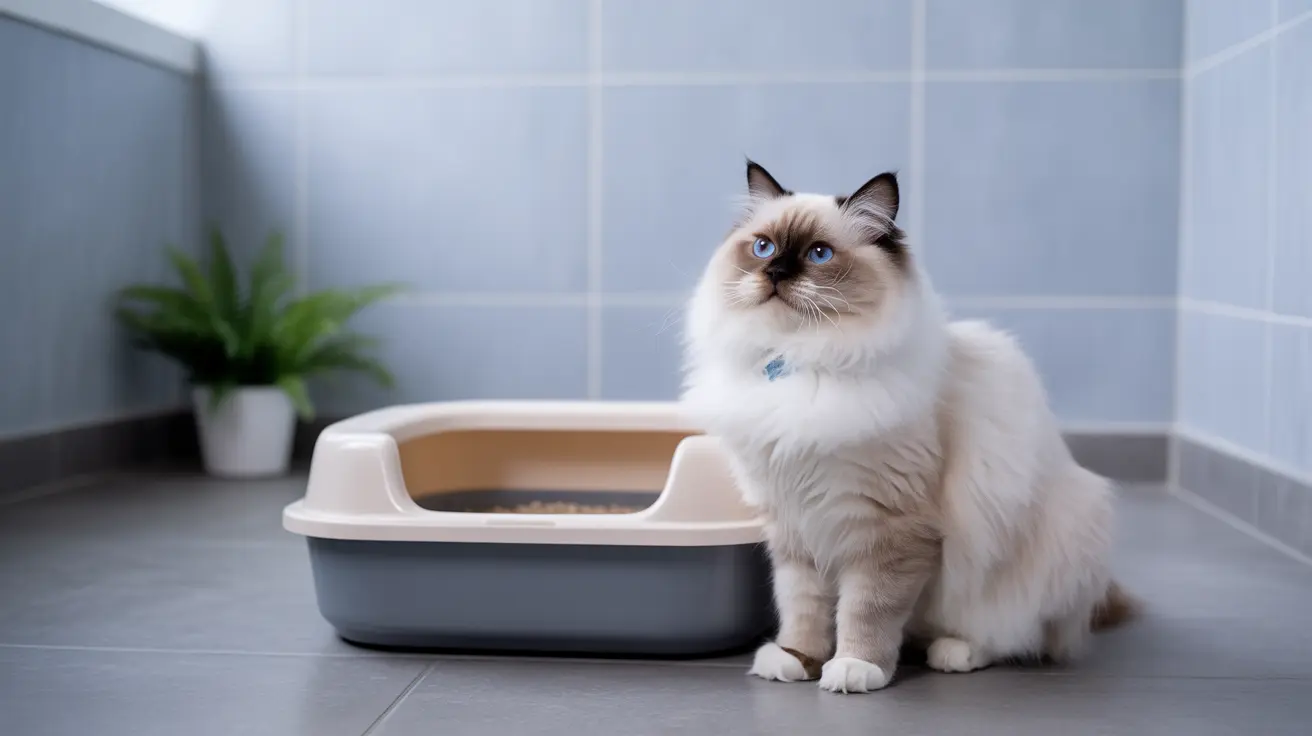Discovering your elderly feline friend suddenly peeing outside the litter box can be both distressing and frustrating. This common issue affects many senior cats and often signals underlying health concerns or age-related changes that require attention. Understanding why your old cat is peeing everywhere is the first step toward finding an effective solution.
As cats age, various medical conditions, mobility issues, and cognitive changes can impact their litter box habits. Let's explore the main causes and solutions to help your senior cat maintain proper elimination behaviors and ensure their comfort and well-being.
Common Medical Causes of Inappropriate Urination in Senior Cats
Urinary Tract Problems
Urinary tract infections (UTIs) and bladder issues are frequent culprits behind inappropriate urination in older cats. These conditions can cause discomfort and urgent need to urinate, leading cats to eliminate wherever they happen to be when the urge strikes. Signs include frequent urination, straining, and blood in the urine.
Chronic Kidney Disease
Kidney disease affects approximately 30% of senior cats and often leads to increased urination and thirst. Cats with kidney disease may not make it to the litter box in time due to their increased need to urinate. Weight loss and decreased appetite often accompany these symptoms.
Diabetes and Hormonal Issues
Diabetes mellitus can cause excessive thirst and urination, making it difficult for older cats to maintain normal litter box habits. Cats may need to urinate more frequently and urgently, leading to accidents throughout the house.
Physical and Cognitive Challenges
Arthritis and Mobility Problems
Joint pain and stiffness can make it challenging for senior cats to climb into high-sided litter boxes or navigate stairs to reach their usual elimination spots. This discomfort often leads to cats choosing easier-to-reach locations for elimination.
Cognitive Dysfunction Syndrome
Similar to dementia in humans, older cats can experience cognitive decline that affects their memory of litter box location and proper elimination habits. These cats may seem confused or forget their training, resulting in inappropriate urination.
Solutions and Management Strategies
Veterinary Care
The first step when an old cat starts peeing everywhere should be a thorough veterinary examination. Early diagnosis and treatment of underlying medical conditions can prevent the development of permanent inappropriate elimination habits.
Environmental Modifications
Make litter boxes more accessible by:
- Placing boxes on every floor of your home
- Using low-sided boxes for easier entry
- Providing non-slip mats for secure footing
- Ensuring boxes are in quiet, easily accessible locations
Litter Box Management
Maintain optimal litter box conditions by:
- Cleaning boxes daily
- Using unscented, soft litter that's gentle on senior paws
- Providing multiple boxes throughout the home
- Keeping boxes away from food and water sources
Frequently Asked Questions
Why is my old cat suddenly peeing everywhere outside the litter box?
Sudden changes in urination habits often indicate medical issues such as urinary tract infections, kidney disease, or diabetes. It can also result from arthritis making litter box access difficult, or cognitive decline affecting memory and behavior patterns.
What medical conditions cause an older cat to urinate outside the litter box?
Common medical conditions include urinary tract infections, kidney disease, diabetes, arthritis, and cognitive dysfunction syndrome. These conditions can affect either the physical ability to use the litter box or the physiological control of urination.
How can arthritis or mobility issues affect a senior cat's litter box habits?
Arthritis can make it painful for cats to step into high-sided litter boxes, climb stairs to reach boxes, or maintain positions necessary for elimination. This discomfort often leads to cats seeking easier alternatives for urination.
What steps can I take to help my elderly cat stop peeing in inappropriate places?
Start with a veterinary examination to rule out medical issues. Then, ensure easy litter box access, maintain clean boxes, provide multiple boxes throughout your home, and consider using pet steps or low-sided boxes for easier entry.
When should I take my senior cat to the vet if it's peeing everywhere?
Seek veterinary care immediately if you notice sudden changes in urination habits, especially if accompanied by other symptoms like increased thirst, decreased appetite, weight loss, or behavioral changes. Prompt medical attention can prevent serious complications and resolve issues more effectively.
Remember, inappropriate urination in senior cats is often a cry for help rather than a behavioral problem. With proper medical care, environmental modifications, and patience, many elderly cats can return to normal litter box habits and enjoy their golden years in comfort.






